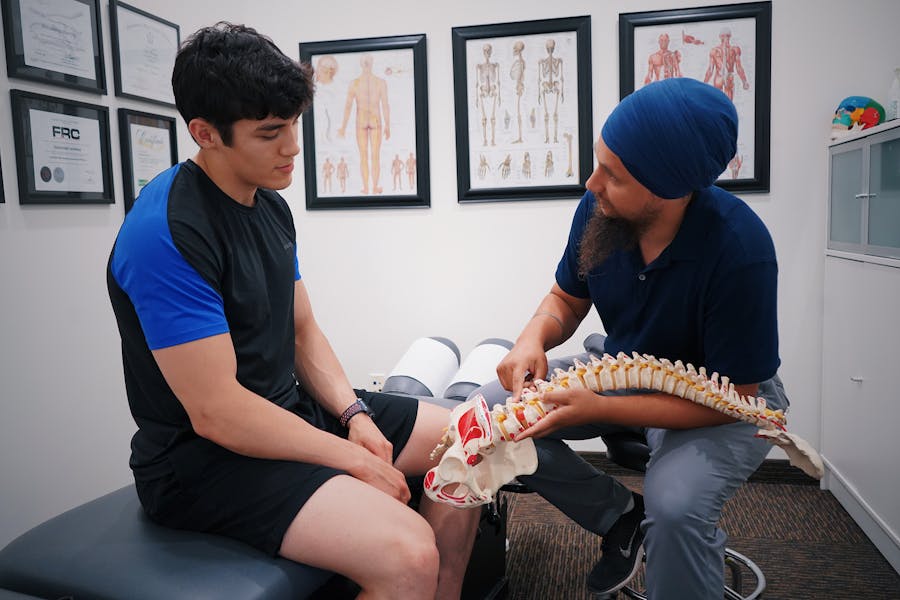From Adversity to Victory: Navigating Recovery After a Spinal Cord Injury
The journey from a spinal cord injury to recovery can be a profound life-altering experience that takes individuals and their families through a maze of emotional, physical, and financial challenges. Spinal cord injuries, classified as either complete or incomplete based on the severity and extent of damage, result in the disruption of signals between the brain and the body. Such injuries often stem from accidents, falls, or sports activities, compelling victims to confront a new reality fraught with potential limitations. Understanding the intricacies of spinal cord injuries, their repercussions, and the paths to recovery empowers both patients and their families.
In the immediate aftermath, medical professionals prioritize stabilizing the patient, preventing further injury, and managing complications. This critical period is characterized by surgeries and close monitoring, during which individuals and their loved ones grapple with the far-reaching implications of the injury. The transition from initial trauma to a strategy for long-term recovery begins here, setting the stage for the more active phases of rehabilitation. As patients emerge from the acute phase, the focus shifts towards tailored rehabilitation programs that encompass physical and occupational therapy, pain management, and the integration of assistive technology.
Physical rehabilitation plays a vital role in helping individuals regain independence and functionality. A comprehensive rehabilitation program includes physical therapy that strengthens muscles and improves mobility, alongside occupational therapy that assists in regaining essential daily living skills. Moreover, pain management strategies are crucial to enable active participation in rehabilitation. The introduction of assistive technology such as wheelchairs and communication devices can radically enhance the quality of life for those navigating mobility challenges. Each of these elements works synergistically to boost the patient’s ability to overcome physical limitations and expand their potential for recovery.
The emotional and psychological challenges accompanying spinal cord injuries are equally significant, frequently requiring dedicated attention for effective healing. Patients may find themselves feeling a mix of shock, anger, fear, and profound sadness, demanding a multi-faceted approach to emotional recovery. Counseling and therapy, whether individual or family-oriented, provide essential support to help process trauma. Participation in support groups fosters community and mitigates feelings of isolation. Moreover, incorporating mindfulness and stress management techniques can further aid patients in navigating their emotional landscape, thus facilitating a more comprehensive recovery process.
Equally critical is addressing the legal and financial ramifications of spinal cord injuries. The burden of medical expenses, rehabilitation costs, and potential loss of income can place immense strain on families. Legal assistance, such as that provided by a specialized Waipahu spinal cord injury attorney, can help victims secure compensation and navigate complex insurance environments. Pursuing personal injury claims for negligence and understanding insurance coverage are pivotal actions that can alleviate some of the financial stress that comes with recovery. Additionally, legal professionals can assist with long-term financial planning, ensuring that victims can sustain their quality of life after the injury.
Finally, the path to recovery is not strictly linear; it involves continuous adjustments and ongoing rehabilitation efforts. Patients must confront new challenges, celebrate progress, and pursue new avenues for engagement, such as adaptive sports and community involvement. These activities not only help maintain physical health but also invigorate mental wellness and foster a sense of community. Advocacy play a powerful role in many survivors’ lives, offering an opportunity to support others facing similar challenges while promoting broader societal change. The journey from trauma to recovery, though rigorous, can also be a powerful testament to human resilience and determination.
Seeking legal guidance and support is vital for those navigating the aftermath of such injuries. With the right resources and a shift in mindset, those affected can reclaim agency over their lives and strive toward fulfilling existences, filled with purpose and possibility. The essence of recovery is not merely about confronting loss but rediscovering new paths forward—a narrative underscored by hope, empowerment, and the relentless human spirit.
Share this content:












Post Comment